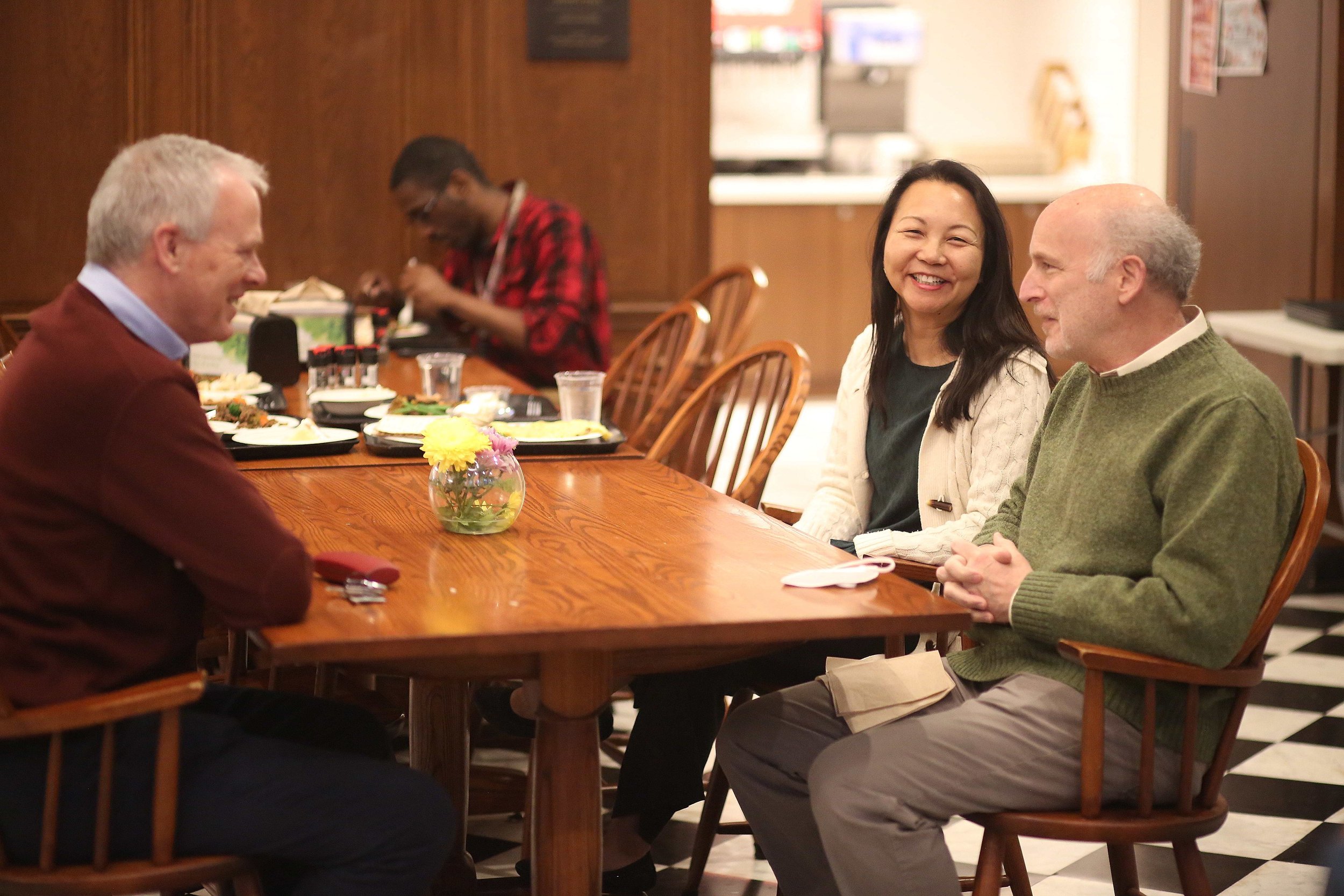Bridging Differences with the College Connection
Jonathan Kempner, ALI 2019
President emeritus of TIGER 21; helping connect college students from diverse backgrounds with successful entrepreneurs
By Clea Simon
Jonathan Kempner understands the value of connections. As the president emeritus of TIGER 21, an international peer membership organization for entrepreneurs, investors & executives, the 2019 Advanced Leadership Initiative (ALI) Fellow has built a career learning to listen – and helping others listen to learn as well.
Listening to others, Kempner explains, is a first vital step toward understanding. Increasingly aware of the polarization in this country, the Stanford law alumnus was therefore particularly receptive to the work of Shamil Idriss, CEO of the nonprofit Search for Common Ground, when Idriss spoke to TIGER 21.
Search for Common Ground, which works to avoid violent conflict by bringing groups together for constructive dialogue, has programs around the world. When Idriss explained a new initiative that would bring such dialogues to college campuses, Kempner was intrigued. As an undergraduate at University of Michigan and at Stanford Law School in the 1970s, he’d seen the impact of mounting tension on college campuses. And, as an ALI Fellow, he had reached a point in his life where he could contribute, helping create First Year Connect, an orientation program that virtually brings together college students from diverse backgrounds the summer before their first semester of classes, in lieu of the traditional student orientation week.
“We thought that if we could get to the first-year students before coming onto college campuses and have a program where they could meet diverse people in the college community as they came in that could be a very potent force in cooling campuses down initially before trouble happened,” he said.
In addition to funding, his organization brought a wealth of expertise and connections to the venture – including connections with college and university leaders around the world. “We thought we could involve some of the successful entrepreneurs of TIGER 21 in Search for Common Ground’s wonderful work,” Kempner recalled.
The timing is intentional. For the majority of first-year students, Kempner explained, “this is their first time where they’re independent. They have enough self-confidence at that point so they could interact. And the program has the added advantage that it could be a requirement so that the students couldn't play hooky.”
“ALI was the perfect training grounds for this,” said Kempner. “Our classes include deep dives. The curriculum is based on community service. It’s based on networking and reaching out.” He praised classes with Laurence D. Belfer Professor of International Affairs at the John F. Kennedy School of Government and Professor of History Frank Logevall and former Homeland Security Assistant Secretary and current Belfer Senior Lecturer Juliette Kayyem as particularly inspiring.
Kempner currently serves as Scholar in Residence, pictured here meeting with Harvard’s Winthrop House students
Kempner connecting with other ALI Fellows, Wendy Hayes (2021), and Ciaran Hayes (2021)
In addition, Kempner, who is currently a scholar in residence at Winthrop House, says Harvard added its own “special sauce” to the mix: “The Harvard campus has its controversies like any other university. So, I had that environment, plus the other Fellows who are so reinforcing and wonderful as we share ideas.”
Following Kempner’s ALI Fellowship, First Year Connect began planning its pilot program. Two colleges, SUNY Potsdam and Amherst College, were on board for summer 2020 when the pandemic hit, upending any idea of on-campus gatherings. Luckily, one of the subsidiaries of Search for Common Ground, Soliya, had already been implementing virtual exchange programs for nearly two decades – bringing together young people from around the world in safe facilitated dialogue using video conferencing technology. The program was quickly repurposed to the US context. “We didn’t have to invent the wheel,” said Kempner.
Following that successful pilot, TIGER 21 is now committed to scaling up the program, in essence offering to help pay half the costs for a college’s first year. Search for Common Ground responded by honoring TIGER 21 with the 2021 Common Ground Award for Visionary Philanthropy “nurturing a generation of leaders who have the ability to engage constructively across differences.”
“I’m a networker and an organizer by nature,” said Kempner. “And so all of these modest skills have come together in this regard.”



